Champions of Change Blog
Raising Expectations to Change Lives
Posted by on May 7, 2012 at 11:45 AM EST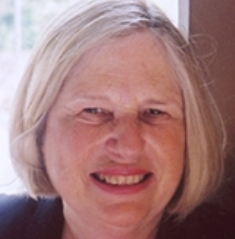
Virginia Stern is being recognized as a Champion of Change for leading education and employment efforts in science, technology, engineering and math for Americans with disabilities.
My husband, Bob, and I are parents of four now-adult children, two of whom have disabilities. We knew that each of them needed the best possible education, disabled or not. I remember so well when the #504 Regulations of the Rehab Act were signed in May 1977, opening up programs in higher education for qualified students with disabilities. Citizens with disabilities held demonstrations in many U.S. cities to initiate this critical effort for civil rights. There were huge barriers to overcome--physical, technological, attitudinal, and social. I was already an advocate, but this battle inspired me to join the American Association for the Advancement of Science (AAAS), the country's largest interdisciplinary science and engineering organization, and become a leader in its fledging Project on Science, Technology, and Disability, working to highlight lives of people with disabilities in STEM careers so they could serve as mentors to younger students.
Making STEM Accessible to All Americans
Posted by on May 7, 2012 at 11:40 AM EST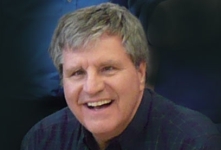
George Kerscher is being recognized as a Champion of Change for leading education and employment efforts in science, technology, engineering and math for Americans with disabilities.
A vast amount of science, technology, engineering and math (STEM) information is usually presented visually, from graphs and tables to diagrams and math equations. Students and professionals in the STEM fields who are blind or have low vision must find ways to access this data. In many cases, they still rely on other people to read and describe images for them. This creates a dependence that can be inefficient and time consuming. Also, students often must wait for months to get their learning materials in alternative formats.
DAISY (Digital Accessible Information System) is the international standard used for creating accessible digital talking books and e-books. The standard allows users with print disabilities to efficiently navigate and access book content. To ensure that math is accessible within DAISY books, the DAISY Consortium formed a working group consisting of several dedicated individuals from our member organizations. This working group developed a mechanism for extending DAISY to include MathML support. MathML is the standard markup language for mathematical formulas for making them meaningful and accessible with screen readers and braille. Access to knowledge through alternative formats and digital talking books (DTBs) has created more independence and opportunities for print-disabled users.
Making a Difference for Students with Disabilities in STEM Education: Understanding Facilitators and Barriers to Success
Posted by on May 7, 2012 at 11:35 AM EST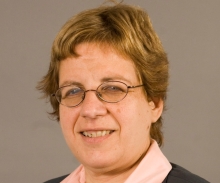
Maria Dolroes Cimini is being recognized as a Champion of Change for leading education and employment efforts in science, technology, engineering and math for Americans with disabilities.
As a scientist-practitioner with a disability, I have been inspired by a number of leaders and mentors living in our great nation, and I am honored to have the opportunity to give back to our country by having been selected as a Champion of Change. In reflecting on my own experiences as a scientist and woman with a disability, I have come to realize the many ways in which my own life challenges have been transformed into my passion to support access to STEM for students with disabilities.
There have been many advances in education, legislation, and access for students with disabilities in the United States in recent decades. However, for students with disabilities and the family members, faculty, advocates, and employers who work with them, technological advances, legislation, accessible environments, and global communications are not always enough to illuminate the pathway to STEM. Barriers remain in the transitions at many levels from schools to workplace and careers. Students and gatekeepers in education and employment continue to need existing proof of achievement to change the stereotype of what people with disabilities can accomplish in STEM disciplines.
Transforming Education with Universal Design for Learning
Posted by on May 7, 2012 at 11:30 AM EST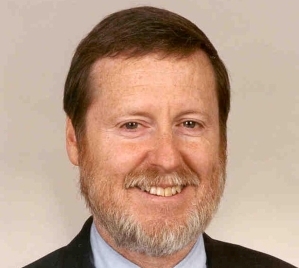
David Rose is being recognized as a Champion of Change for leading education and employment efforts in science, technology, engineering and math for Americans with disabilities.
Each day, educators face an enormous challenge in the classroom: to guide a group of varied individuals toward becoming motivated and successful learners. Teachers know how hard this work is. The personal differences from student to student can be vast. Yet educators often do not have the curriculum tools or support they need to educate in ways that allow various paths for success.
For more than 25 years, my colleagues and I at CAST—an education R&D organization based in Wakefield, Massachusetts—have explored ways to expand and improve educational opportunities for all individuals. This work led us to pioneer the idea of universal design for learning (UDL) in the 1990s. UDL is a set of principles to guide the development of instructional goals, methods, materials, and assessments that are flexible enough to be effective for all individuals.
Believing to Succeed: The Power of STEM Education
Posted by on May 7, 2012 at 11:25 AM EST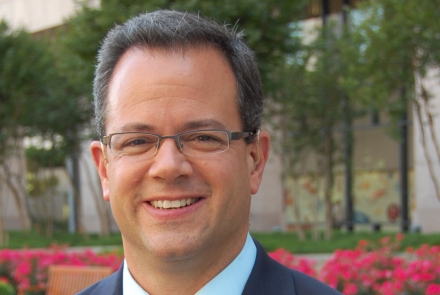
Rafael San Miguel is being recognized as a Champion of Change for leading education and employment efforts in science, technology, engineering and math for Americans with disabilities.
Due to an incorrect dose of antibiotics, I became deaf when I was a few days old. At the St. Joseph’s Institute for the Deaf in St. Louis, the dedicated Sisters of St. Joseph taught me to speak the same way Helen Keller learned, by feeling vibrations on someone else’s throat. After graduating from all-hearing Chaminade Prep School in St. Louis, I attended Texas A&M as an undergraduate. If you know any Aggie, you know you don’t go through Texas A&M without emerging with the understanding and responsibility of service to others. I was able to get through college without the use of an interpreter primarily because I was surrounded by a community of people eager to step up and lend a hand by taking lecture notes for me in class.
After college I began my career as a scientist working for NASA. Ever since I was a young boy I had wanted to become an astronaut, but realized that I couldn’t because of my disability. If you say to mission control “Houston, we have a problem” you need to be able to hear their response. However, what I still could do was work on the Space Shuttle program as a scientist where my work developing food for astronauts involved a project to send the first can of Coca-Cola into outer space. This was ironic since I would find myself in my private sector career working for The Coca-Cola Company as a flavor chemist, now for over 23 years.
STEM Education Success Powered by IDEAL’s ePub3 Reader
Posted by on May 7, 2012 at 11:20 AM EST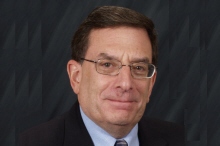
Steve Jacobs is being recognized as a Champion of Change for leading education and employment efforts in science, technology, engineering and math for Americans with disabilities.
Thirty seven years ago, when I began my high-tech career, I never gave a second thought to Science, Technology, Engineering or Math (STEM). My college education was saturated with STEM courses and STEM concepts were woven into the fabric of my being.
STEM education creates critical thinkers, increases science literacy, and enables the next generation of innovators. Innovation leads to new products and processes that sustain our economy. This innovation and science literacy depends on a solid knowledge base in the STEM areas. It is clear that most jobs of the future will require a basic understanding of math and science. Ten-year employment projections by the U.S. Department of Labor show that of the 20 fastest growing occupations projected for 2014, 15 of them require significant mathematics or science preparation.
- &lsaquo previous
- …
- 113
- 114
- 115
- 116
- 117
- 118
- 119
- 120
- 121
- …
- next &rsaquo
White House Blogs
- The White House Blog
- Middle Class Task Force
- Council of Economic Advisers
- Council on Environmental Quality
- Council on Women and Girls
- Office of Intergovernmental Affairs
- Office of Management and Budget
- Office of Public Engagement
- Office of Science & Tech Policy
- Office of Urban Affairs
- Open Government
- Faith and Neighborhood Partnerships
- Social Innovation and Civic Participation
- US Trade Representative
- Office National Drug Control Policy
categories
- AIDS Policy
- Alaska
- Blueprint for an America Built to Last
- Budget
- Civil Rights
- Defense
- Disabilities
- Economy
- Education
- Energy and Environment
- Equal Pay
- Ethics
- Faith Based
- Fiscal Responsibility
- Foreign Policy
- Grab Bag
- Health Care
- Homeland Security
- Immigration
- Innovation Fellows
- Inside the White House
- Middle Class Security
- Open Government
- Poverty
- Rural
- Seniors and Social Security
- Service
- Social Innovation
- State of the Union
- Taxes
- Technology
- Urban Policy
- Veterans
- Violence Prevention
- White House Internships
- Women
- Working Families
- Additional Issues

